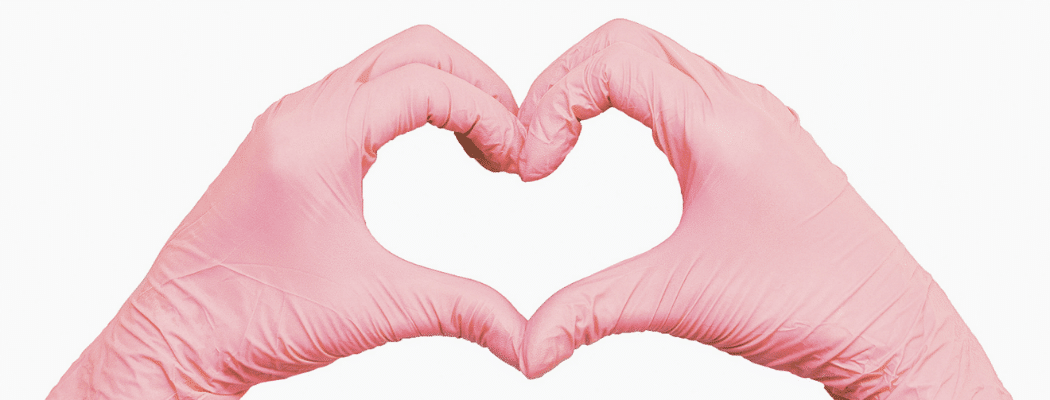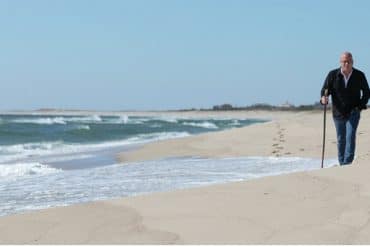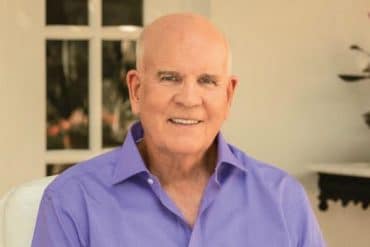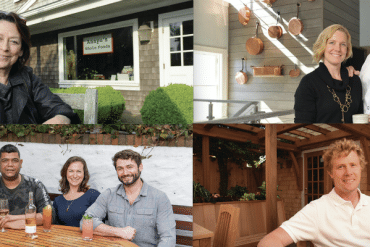In the face of COVID-19, Nantucketers answer the call of duty.
Working on Nantucket has always required enduring extremes. The feast or famine dynamic of the island’s seasonal economy puts tremendous demand on its workers who earn the majority of their yearly income in a matter of months. When the coronavirus gripped Nantucket in early spring, islanders were already in a particularly vulnerable position. They had waited all winter to start working again, and now just as the season was about to kick off, they were forced to stay home.
The tremendous sacrifices countless people made for the sake of the community exemplify Nantucket exceptionalism, which might just prove to be the reason why the island emerges from this pandemic as healthy as possible. At the same time, while many people sheltered in their homes, others responded to the call of duty with inspiring resolve. Here are just some of the countless Nantucketers who have stood tall to serve the community.
___
 DR. DIANE PEARL
DR. DIANE PEARL
Nantucket Cottage Hospital
Dr. Diane Pearl didn’t have a chance to think about what her leadership style might be serving as Chief Medical Officer at the Nantucket Cottage Hospital. “The position came about very unexpectedly,” Dr. Pearl said. “It happened within seconds of CEO Gary Shaw wanting someone in this position at his side when we started to see that trouble was on the horizon with the coronavirus.” During their last face-to-face medical staff meeting in March, Dr. Pearl was nominated for the position by one of her colleagues and she accepted. “Within days of that, the world shut down,” Dr. Pearl said. “Everything changed, and we have just not been able to look back.”
Born and raised on Nantucket, Dr. Pearl ran her own private practice for twenty years before joining the ranks of the Massachusetts General Physicians Organization in 2009. Specializing in internal medicine, primary care, cardiology, oncology, infectious disease and geriatrics, Dr. Pearl served as physician unit chief at Nantucket Cottage Hospital. Yet no amount of experience could have prepared anyone for quarterbacking a medical staff fighting a global pandemic at a rural hospital on an island thirty miles out to sea.
“It’s been nonstop trying to prepare Nantucket and the hospital for what was coming our way,” Dr. Pearl said. “But it has been really gratifying how this team and these people have worked together seamlessly without any discord or disgruntlement. It’s been a lot of work for everybody, but I’m overwhelmed by just how enthusiastic and helpful everyone on this team has been.”
Each day begins with reviewing new policies, new procedures, new protective equipment recommendations and new guidance on how to treat, test and prevent the disease. These updates happen overnight, sometimes hour to hour. Along with focusing on how to test and treat COVID-19 patients while staying safe themselves, Dr. Pearl and her team also grapple with how to treat patients not impacted by the coronavirus.
In leading the medical teams through these uncharted waters, Dr. Pearl has empowered those around her to lean into their expertise. “I have found quickly that asking for the advice or input from people in each specialty when forming a policy is really effective,” she described. For instance, after building their drive-through COVID-19 screening clinic, Dr. Pearl has continued to rely on the three physicians assistants who run the operation to fine-tune the process as they deem fit. “Because they are doing it and they would have the best insights,” she said.
As for Nantucket as a whole, Pearl points to the actions taken earlier as part of the island’s success in flattening the curve and preventing a surge in the hospital. “I fully expect that we’re still going to have quite a busy summer,” Dr. Pearl said. “But practicing social distancing, wearing masks, washing our hands, and following the very simple strategies might allow us to go through the rest of the summer without a surge of cases of this virus.”
___
 ROBERTO SANTAMARIA
ROBERTO SANTAMARIA
Nantucket Health Department
Roberto Santamaria was one of the very first town officials to sound the alarm about the coronavirus’s potentially catastrophic impact on Nantucket. As the town’s director of public health, Santamaria was trained as an epidemiologist and recognized the lethal damage the virus could wreak on the island all the way back in December. Monitoring the global situation alongside Nantucket’s emergency management coordinator Brendan Coakley throughout January, Santamaria helped mobilize a meeting with the police chief, the fire chief, and the hospital on the fourth of February that set in motion the island’s preventative measures. This was at a time when there were only ten confirmed cases in the country, long before the federal or state government had acted in any significant way.
Thanks to this decisive leadership early on, Nantucket is facing a much different prognosis today than most other communities in the country. “We put so many brakes on this that instead of flattening the curve, we bulldozed it,” Santamaria said at the end of April. “The proof was in the pudding as we went twenty-two days without a case.” Santamaria has emerged as a trusted voice for the community by regularly serving as the host of Nantucket Pulse, a broadcast on NCTV made possible by the Nantucket Cottage Hospital Community Health Initiative.
Though optimistic, Santamaria insists that Nantucket’s work is hardly finished. As the island’s population prepares to surge and as the economy comes back online, the need for vigilance will be that much greater. Without a vaccine or any proven therapies, Nantucketers will need to operate with a whole playbook that Santamaria and the Town leadership are developing each day. Along with social distancing measures remaining in effect at least through the fall, Santamaria anticipates stringent policies around occupancy, workplace protocols, and civic behavior. While he sometimes faces harsh scrutiny from the business community that is eager to reopen, Santamaria has faith that Nantucket will continue to follow the guidelines designed for the health and safety of the island. “The community has come together in a way that I’ve never seen before,” Santamaria said. “They’ve come together in a way that most people in the country will probably never see.”
___
 TESSANDRA de ALBERDI
TESSANDRA de ALBERDI
Fairwinds – Nantucket’s Counseling Center
Even before the coronavirus hit, Tessandra de Alberdi and her team at Fairwinds— Nantucket’s Counseling Center already had a waitlist for their critical mental health, addiction, and family services due to the long winter season. Yet as the virus gripped the island, demand rose and de Alberdi anticipates it will continue to do so, potentially skyrocketing.
“There’s been an increase in crisis,” de Alberdi said. “People who were working on sobriety have been tested and there have been many relapses. Those who were isolated and depressed previously, now feel that it’s unbearable and we’ve had some very close calls.” She and her team have also witnessed an increase in protective services required for situations of domestic violence, neglect, and sexual abuse due to sheltering in place. Moreover, islanders who have never sought out Fairwinds now find themselves desperate for someone to talk to.
To meet this critical need, de Alberdi and her team have made all their clinicians available virtually on a HIPAA compliant digital platform where they offer free online support groups and flexible appointments— and they are taking on new clients. “There’s a lot of research out of the UK that tele-health can be as effective or more so for many people,” de Alberdi says. “As long as you’re still having that eye contact and you’re slowing down to make this a priority, it can be a wonderful connection.” Indeed, as de Alberdi expects the need to continue to grow, tele-health will be a lifesaver.
In addition to their virtual counseling services, Fairwinds has been collaborating with Faregrounds restaurant to provide meals to their clients by way of the Community Foundation’s Nantucket Fund for Emergency Relief. Yet while serving the community, Fairwinds itself is in need of support. With the canceling of its summer fundraisers and the closing of the Seconds Shop, the thrift store on Sparks Ave that helps underwrite free services and general operating costs, donations are more vital now than ever to allow Fairwinds to continue meeting the emerging mental health needs on the island.
___
 LINDA PETERSON
LINDA PETERSON
Nantucket Public Schools Food Services
Linda Peterson is used to having a lot of little mouths to feed. For the last thirty years, she has worked as Nantucket Public Schools’ head of food services. Over that time, Peterson has overcome many unique obstacles to ensure that all island children get fed, occasionally even reaching into her own pocket to pay for their meals. But with the closing of schools due to the coronavirus, Peterson faced an entirely unprecedented set of circumstances in serving her little diners.
Along with the logistical challenges of safely distributing breakfast and lunch into the hands of children, the demand on her kitchen grew exponentially as more and more working families were forced to forgo paychecks. “With each passing week, we’ve seen new families in need,” Peterson said. “And they’re so grateful for these meals for their children.”
The success of the breakfast and lunch program is a credit to Peterson’s quick thinking and innovative leadership. With many of her normal staff members forced to stay home due to their own vulnerabilities to the virus, Peterson sought out the assistance of Patrick Ridge, who had publicly pledged that his restaurant Island Kitchen would help ensure that no child went hungry on Nantucket.
While Ridge’s inspiring commitment was quick to grab headlines, Peterson continued working quietly behind the scenes. “Linda is really the unsung hero in all this,” Ridge said. Coordinating two new chefs whom Ridge sent over, Peterson created a whole process for cooking wholesome, healthy meals that she now distributes by way of Ridge’s Island Kitchen food trucks. As children pick up their lunches with their parents, Peterson is reminded every day that she and her team are a critical cornerstone of the island’s food pyramid.
___
 WENDY HUDSON
WENDY HUDSON
Nantucket Book Partners & Cisco Brewers
When Wendy Hudson’s name first appeared on a seventeen-person committee tasked by Governor Charlie Baker to strategize the reopening of the Massachusetts economy, some people off-island might have wondered how a bookseller from Nantucket was appointed to such an important position. Yet beyond her work as the owner of Nantucket Book Partners and co-founder of Cisco Brewers, Hudson has been an influential advocate for small businesses for decades.
She has served on a slew of local and state civic groups and retail organizations, from the Nantucket Chamber of Commerce where she served as president, to the Nantucket Planning and Economic Development Commission, to the Rural Policy Advisory Committee, to most recently, the Retailers Association of Massachusetts, among several others. “My interest has become more macro-level as I am very vocal about how policy decisions can disadvantage small businesses,” Hudson said. “My style is to try and get along with everyone while also pushing for progress…it helps that I’m in the beer business.”
Amid the coronavirus, Hudson has been living proof of the burdens being shouldered by small businesses. While participating in long committee meetings led by Lieutenant Governor Polito, Hudson has been the only one allowed in her stores to fulfill online orders at Nantucket Book Partners. “I am the small business person in this group who is still hands-on, day-to-day,” Hudson described. “While we are on these Zoom meetings, I am literally packing puzzles and books up to be shipped. So I can speak to the challenges of an owner.” Matched with her newly minted MBA from Babson and her decades of experience serving on state and local committees, Hudson has emerged an important champion for small businesses throughout Massachusetts as well as specifically on Nantucket.
“I’ve been vocal about how fragile our seasonal economy is,” Hudson said, “and how close to the wire we’ve been getting.” During these committee meetings, where Hudson and her fellow delegates sit through dozens of presentations from trade organizations, some of the most pressing issues were related to child care, public transportation, and whether the state could play a role in ensuring that there is sufficient personal protective equipment for businesses to meet new safety requirements without taking away from the inventory needed at hospitals.
In reopening the local economy, Hudson recognizes that Nantucket will be required to join the rest of the state under a unified standard of best practices and protocols for doing business as safely as possible—as opposed to having their own rules and regulations. This has been a topic Hudson has discussed with another delegation she serves on made up of representatives and business owners from the Cape and the Islands. On both committees, Hudson said, the sense of urgency has been palpable. “The stakes are so high right now,” she said. “The health risk is still great, yet everyone’s livelihoods have been thrown into question. I definitely feel the great responsibility of what we are doing.”
___
 JONELLE GURLEY
JONELLE GURLEY
Nantucket High School
With the mandatory statewide school closings in place for the remainder of the year due to COVID-19, Jonelle Gurley has held her high school science classes virtually through Zoom. Like countless other teachers on Nantucket and beyond, Gurley is tasked with teaching her lessons in honors chemistry and biology while also trying to help her students adjust to the new normal. “We are just driving this theme home that we are all in this together,” Gurley said. “It’s not normal for any of us.”
Although not assigning tests or exams, she has continued to grade her students on the completion of their assignments. “For me, it’s more about the social-emotional balance of my kids, making sure they are checking in,” Gurley described. “A lot of the students really depend on that formal structure of the school day. Without that, it’s hard to connect.”
Teaching classes with an average of twenty-two students, Gurley has used Zoom to meet students individually who may speak English as a second language or who have special needs. During these sessions, she’s been inspired by their resiliency. “I don’t think these students get enough credit for the amount of grit that they do have,” Gurley said. “Our kids have a strong sense of self and that’s something I wish I had more of at their age.”
This spring marks four years since Gurley began teaching at Nantucket High School, which means her first-year students will be graduating this June. “It’s been incredible to see how much they have evolved and transformed, not just as students, but as young people,” Gurley said. “I’m probably going to cry a lot this year for the graduates. They are my first set of babies and, yep, they are growing up.” — Written by Rebecca Nimerfroh
___
 JEANNE MILLER, MARGARETTA ANDREWS & CARLISLE JENSEN
JEANNE MILLER, MARGARETTA ANDREWS & CARLISLE JENSEN
Community Foundation of Nantucket
Margaretta Andrews, Jeanne Miller, Carlisle Jensen and their entire team at the Community Foundation for Nantucket (CFN) are used to working quietly behind the scenes as a critical support system to more than one hundred island nonprofits. Yet in the face of the coronavirus, they’ve emerged on the frontlines, not only serving nonprofits but also one of the hardest hit industries on Nantucket.
“CFN can only provide funding to 501(c)3 organizations so we developed a program that partners nonprofits with restaurants serving food to help feed our community,” described Jeanne Miller, CFN’s program director. “This helps both the restaurant workforce, who have been hit so hard during this time, and the clients, patients and constituents of our island’s nonprofits.”
At press time, the Community Foundation had matched seven restaurants with seven human service nonprofits. Within the first week, the Food Relief Initiative had distributed a total of seven hundred meals. “The inspiration for this program came from the amazingly unselfish work of Or, Whale and the Sandbar, who fed our seniors in coordination with the Saltmarsh Center out of their own pockets for weeks,” said Margaretta Andrews, CFN’s executive director. “Our staff, primarily Jeanne Miller and Carlisle Jensen, are the driving forces behind this program, which has grown exponentially.”
A subset of CFN’s Nantucket Fund for Emergency Relief, the Food Relief Initiative received a $100,000 pledge from an anonymous donor that could keep the program operating through the beginning of June. “The way things are going,” Andrews said, “there is every chance that we’ll need more funding.” Indeed, at press time, CFN had already reached out to a number of other nonprofits to create more of these restaurant partnerships. As seasonal residents seek ways to support the community during this incredibly challenging time, the Community Foundation’s Food Relief Initiative might just give them the biggest bang for their buck.






